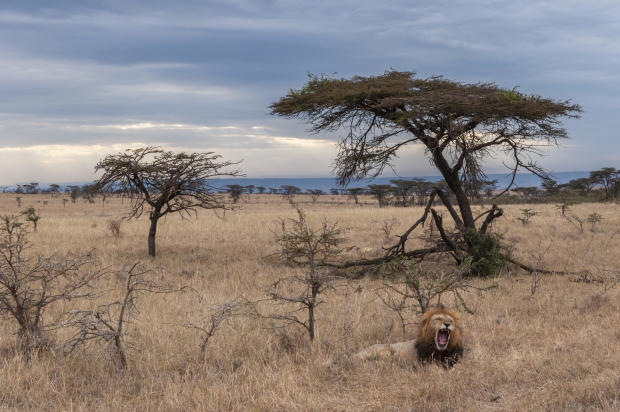
Lions are being forced to change the way they hunt. It’s all because of a tiny invasive ant, scientists say.
A tiny invasive ant muscled into a Kenyan savannah and sparked such a dramatic transformation in the landscape that even the local lions changed the way they hunt, according to research published Thursday.
The study highlights the potentially profound impacts of invasive species, which are spreading at an increasing rate as human activities give animals, insects and plants opportunities to hitchhike into new territories.
“Oftentimes, we find it’s the little things that rule the world,” said Todd Palmer, an ecologist from the University of Florida, who was part of the research team that traced the implications of the big-headed ant on the hunting habits of lions in central Kenya.
said Meredith Palmer, an ecologist who was not involved in the study.
The researchers were surprised to find that the ants’ impact did not cause the lion population to decline — good news because lion populations in the region have already shrunk to around 2,000 individuals from an estimated 100,000.
Instead, the big cats switched dining preference and strategy — ganging up in larger groups to go after buffalo, said Douglas Kamaru of the University of Wyoming, lead author of the study.
While the lions have adapted thus far, the big-headed ants could spell trouble for other species that rely on the whistling-thorn tree, like giraffes or the critically endangered black rhino.
“The question is what happens going forward,” Kamaru told Agence France-Presse.
And the lions’ changing diet may provoke its own cascade of impacts.
“We don’t yet know what could result from this profound switch in the lions’ hunting strategy,” Palmer said.
Last year, the intergovernmental science advisory panel for the U.N. Convention on Biodiversity catalogued more than 37,000 so-called alien species that have taken root — often literally — far from their places of origin.
That number is trending sharply upward, along with the bill for the damage, estimated at well over $400 billion a year.
Research has shown that climate change has exacerbated the situation. One study found that at least a third of new introductions of invasive species in the last 200 years have occurred since 1970.
In November, a different study looked at how warming temperatures have changed the hunting habits of cheetahs. Researchers found that the speedy cats — usually daytime hunters — shift their activity toward dawn and dusk hours during warmer weather. That sets them up for more potential conflicts with mostly nocturnal competing predators such as lions and leopards, the study said.
Source: cbsnews.com